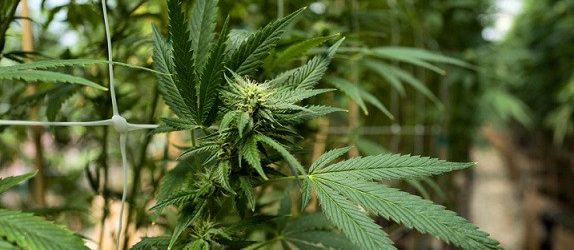Tax reforms intended to encourage consumers to buy cannabis from licensed businesses are in the works in Sacramento, and local members of the industry say, if passed, the reforms would have a positive impact.
“This is specifically important to small and independent businesses that make up the majority of the cannabis companies in Humboldt County,” Terra Carver, executive director of the Humboldt County Grower’s Alliance, wrote in a text message to the Times-Standard.
Assemblyman Rob Bonta (D-Oakland) introduced Assembly Bill 1948, which would “suspend the state’s cultivation tax and reduce the excise tax from 15% to 11% for a period of 3 years,” in an effort to stymie the cannabis black market by reducing the price disparity between it and the legal market, according to a release from Bonta’s office.
“The illicit market continues to undercut businesses that are complying with state regulations and doing things the right way,” Bonta said in a statement. “AB 1948 will temporarily reduce the tax burden on these licensed operators to keep customers at licensed businesses and help ensure the regulated market survives and thrives. Other states have shown this actually to increase overall tax revenue.”
Tax reform is this year’s highest priority in Sacramento for the grower’s alliance, Carver wrote.
“We are looking to streamline tax collection while reducing the overwhelming tax burden this industry faces,” Carver wrote.
Jeff Poel, the owner of Eureka cannabis dispensary EcoCann, said the whole idea of the white market is to make it affordable for people. The excise tax is imposed only on products like alcohol and tobacco, not on other items like food and clothes, he said.
“So excise tax equals sin tax,” Poel said. “You have to balance the amount of the sin tax versus the black market. The black market will exist as long as there’s a tax.”
Everyone agrees the excise tax is too high, Poel said, and they know that because the black market is flourishing.
“Originally when the legislation first happened, it took a nosedive,” Poel said. “But now the black market has had a major rebound because the excise tax is too much.”
Thousands of illegal dispensaries are still operating in Los Angeles and the Bay Area, Poel said, and the legal market can’t compete with that.
“Only 170 of the estimated 1,700 cannabis dispensaries operating in Los Angeles are properly licensed putting law-abiding businesses at a disadvantage,” Assemblymember Reginald Byron Jones-Sawyer, Sr. (D-South Los Angeles) said in a statement.
However, instead of reducing the excise tax, Poel said the state instead increased it this year. That’s because the state made inaccurate projections about the amount of tax that would be able to fund the industry’s regulation through the Bureau of Cannabis Control and its sister agencies, he said.
Since the agencies didn’t receive enough funding, Poel said they had the option of reducing the size of the agency or increasing taxes and they opted to do the latter.
“I’m in favor of taxation,” Poel said. “I’m in favor of excise taxes, I’m in favor of regulation, but you have to do the math and do what the math tells you to do. … Politically that can be challenging.”
Taxation is only part of the picture though, Poel said, and the rest is enforcement.
“There’s too little enforcement for a variety of reasons,” Poel said.
Enforcement on a state level is tough, said Sean DeVries, a cannabis businessman and District 2 supervisor candidate, but Humboldt County is in a different position that needs to take a more careful approach to enforcement.
Cannabis has been an economic engine in the county for the past 30, 40 years, DeVries said, which hasn’t been the case for the rest of the state.
“All progress is good progress,” DeVries said. “I think this is good. It’s a great effort and they’re acknowledging it’s a problem. It’s certainly not solving all the problems all at once, but wouldn’t that be incredible if that were to happen.”
The proposed reforms would give more wiggle room for unlicensed cannabis operations to pay the costs to come into compliance, Devries said, and “reducing barriers to entry is a good thing.”
At the moment, DeVries said Mendocino and Humboldt counties only have a 10% conversion rate for turning unlicensed farms to licensed ones.
“We can do better than that,” DeVries said.
Sonia Waraich can be reached at 707-441-0506.


